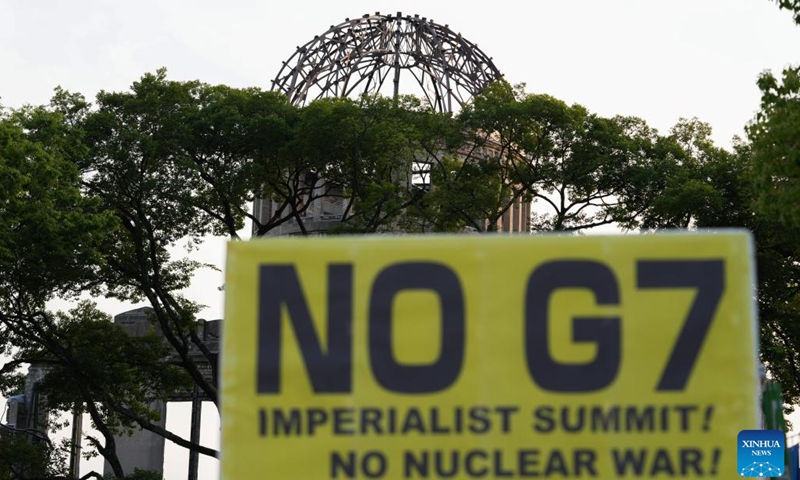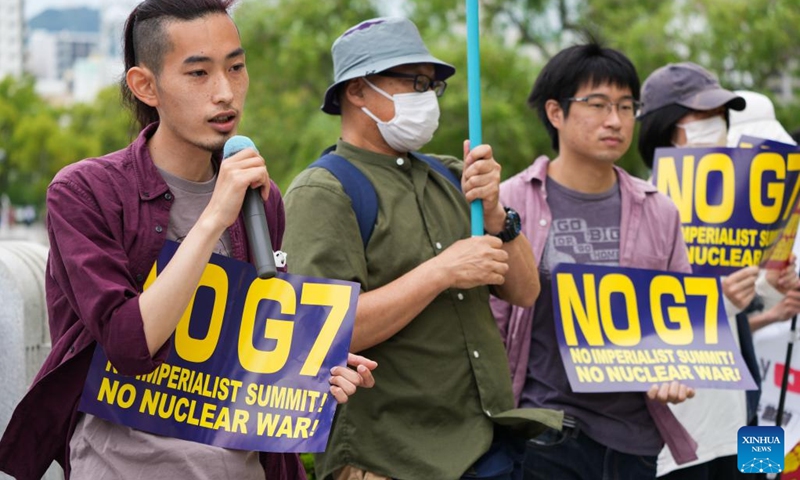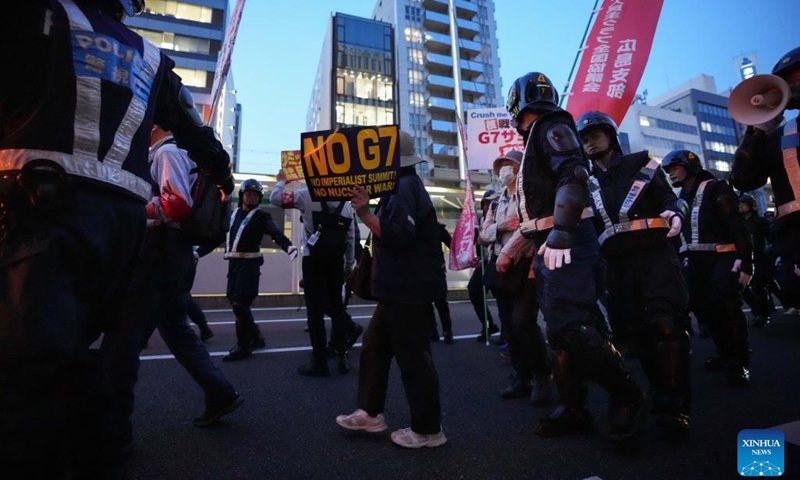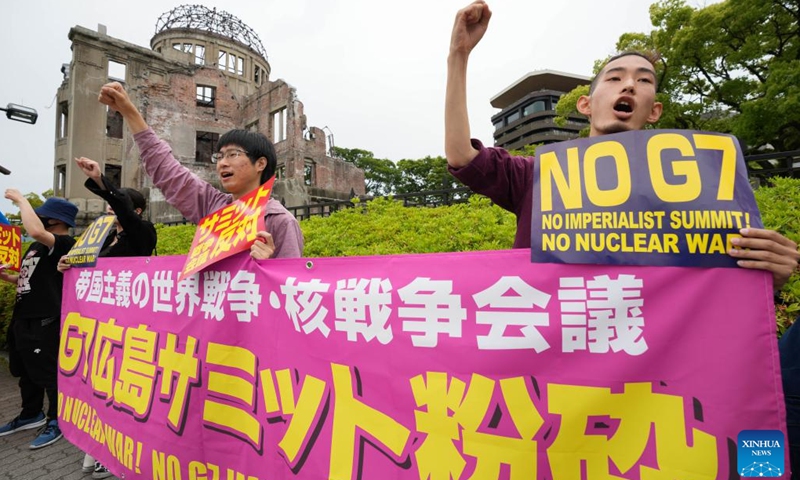Kishida, Biden meet ahead of G7 gathering in Hiroshima amid protests, tightened security

A slogan is pictured at the Hiroshima Peace Memorial Park in a protest against the upcoming Group of Seven (G7) summit, in Hiroshima, Japan, May 17, 2023.(Photo: Xinhua)

Protesters rally at the Hiroshima Peace Memorial Park in a protest against the upcoming Group of Seven (G7) summit, in Hiroshima, Japan, May 18, 2023.(Photo: Xinhua)

Protesters rally in a protest against the upcoming Group of Seven (G7) summit, in Hiroshima, Japan, May 17, 2023.(Photo: Xinhua)

Protesters rally at the Hiroshima Peace Memorial Park in a protest against the upcoming Group of Seven (G7) summit, in Hiroshima, Japan, May 18, 2023. (Photo: Xinhua)
Japanese and U.S. leaders on Thursday met in Hiroshima prior to a larger gathering of Group of Seven (G7) nations, overshadowed by protests and a tense atmosphere.
Japanese Prime Minister Fumio Kishida, who holds the G7's rotating presidency and will host a three-day G7 summit which starts Friday, held talks with U.S. President Joe Biden on Thursday evening in the western Japanese city.
The two leaders discussed further strengthening deterrence of the Japan-U.S. alliance and decided to advance Japan-U.S.-South Korea cooperation, according to notes released after the meeting.
Hiroshima, devastated by U.S. atomic bombings in 1945, has become the scene of intense demonstrations decrying the bloc days before the summit, while police officers from all over the nation were seen patrolling the streets.
Nearly 100 protesters gathered from Wednesday to Thursday in front of the Hiroshima Peace Memorial, also known as Atomic Bomb Dome, at Hiroshima Peace Memorial Park, which will be shut till next Monday due to the summit.
Pulling up banners and signs such as "Crush the G7 Summit" and "No War-themed Conference," protesters shouted slogans such as "No Japan-U.S. leaders talk" and "Withdraw U.S. military bases in Japan."
The protesters, including university students and family members of atomic bombing victims, rallied along one of the main streets in Hiroshima, crowded by police over 10 times the number of protesters.
The Japan-U.S. leaders' talk on Thursday will eventually lead to upgrades of the military alliance between the two countries in East Asia, said Ryo Miyahara, head of a Hiroshima citizens' group and one of the protests' organizers, citing the Japanese government's aggressive announcements of counterattack abilities in striking enemy bases and doubling its defense spending.
"Today's talks will definitely ignore the ideas of ordinary people," said Akamine Chiaki, a college student from Okinawa at Thursday's rally.
His words were echoed by another protester on-site, a 23-year-old French student named Fred who now studies Japanese in Osaka, who said there is nothing to be expected from the G7 gathering.
"The G7 summit has nothing to do with the interests of humanity," he told Xinhua, adding that it is simply a game for the rich bloc.
